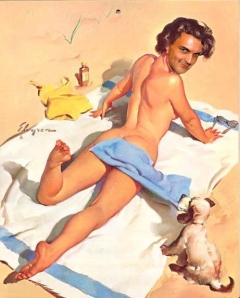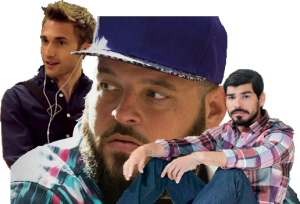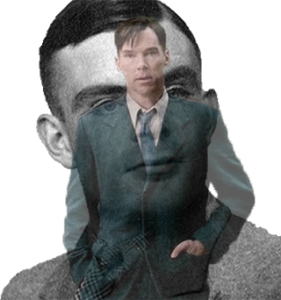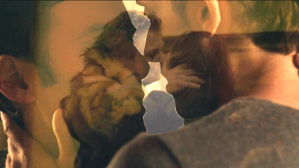
Wesley Taylor‘s butt is a magical thing to behold. Making that observation, I instantly feel the portly, graying, eccentric sextegenarian that I am not (yet!) Fortunately for viewers (junkies?) of his deliciously sweet inebriant of a show (in tandem with his supersonically outrageous “playmate” Mitchell Jarvis), Taylor’s caboose is literally and delectably the marachino in an ecstatically entertaining concoction.
Starting from what they know, Taylor and Jarvis, who previously had put together what amounted to videoed skits on their off (and occasionally on) hours doing duty on a third-rung musical homage, debuted their first season as a no-holds barred send up of life in the biz in the big city, and in the process warped the notion of “power bottom”-ing into quite another stratosphere.
Their new season, a logical and welcome extension to the Best Coast wreaks equally (and inequally) yummy and justified havoc. Given the simply presented and moved on from homo-affection and sexuality of Season One, Taylor and Javris zanily spend a good deal of this season pushing back at their audience. Until as if driving along in one of our more rarified hoods, the show hit a jarring speed bump.
Which unfortunately prompts me to pull the emergency brake on this otherwise glowing tribute, as if Taylor had suddenly soiled and/or made a stink in his Aussie Bums. For his character, after implying (much less blatantly than Jonathan Tolin’s lovingly written one-man show for the lovely and talented Michael Urie) his being strung up into a Norma Desmond-like flytrap in season one, now goes whole hog, i.e. going down to better get to the top professionally. Once “there,” his co-star on (yet another) heteromalecentric violence fest, where yelling, punching, and post-mortem sobs constitute emotional interaction, quickly picks up on the source of Taylor’s rapid rise, and confronts him with the homophobic “F” word.
Up until now, the sufferings of Taylor’s character, despite his best efforts to manage anything about his life, have been not only utterly endearing, but incredibly disasterous, without an ounce of victimhood or pity. But here, he and Jarvis try circumventing what feels like a dealbreaker and turn it into a sudden, bracing, and “homo” (as in man-to-man, but not gay) validation, somehow recalling the water glass duel between Shirley Maclaine and Anne Bancroft. I didn’t buy it, but I’m guessing the choices they think they had might have been few, given where they were coming from, and where they want to move on to.
It’s acceptable that Jarvis’s character ultimately pulls Taylor back, essentially, into the show, to this (to quote almost any character, especially Taylor) “mheh” place. As in, I’ll find whatever way I can to get a hold of season 3 soon after it’s aired (hopefully). But given the daring, the fun, and the “realness” they’ve built so far, I know they can, should and need to do a lot better. Get to work, boys . . .



